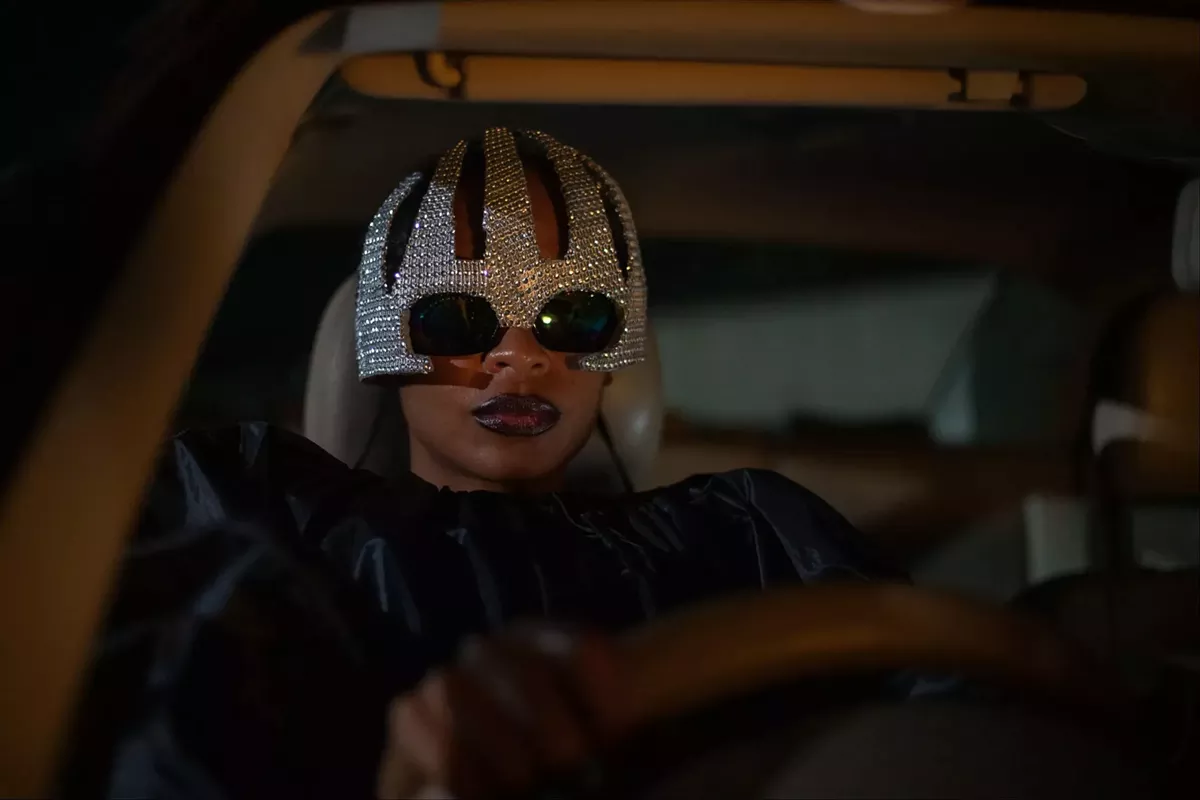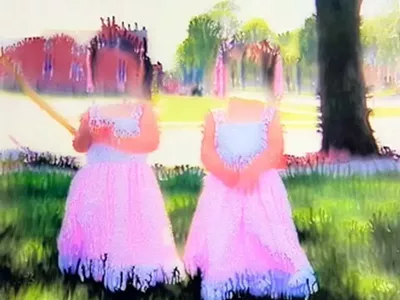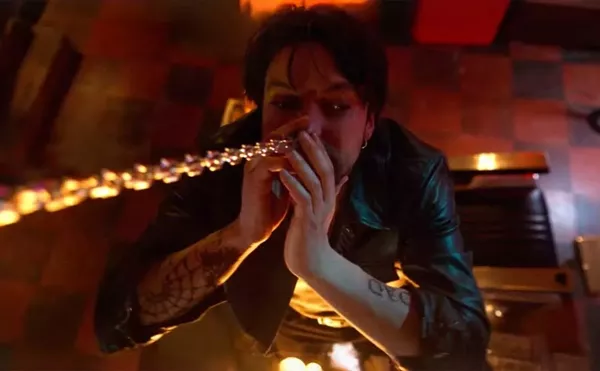‘On Becoming a Guinea Fowl’ deserves to be seen by as many people as possible
This is cinema as protest, sending its rage at misogyny, late-stage capitalism, colonization, and so many more


Audio By Carbonatix
[
{
"name": "GPT - Leaderboard - Inline - Content",
"component": "35519556",
"insertPoint": "5th",
"startingPoint": "3",
"requiredCountToDisplay": "3",
"maxInsertions": 100,
"adList": [
{
"adPreset": "LeaderboardInline"
}
]
}
]
Uncle Fred has died. He died in the street across the way from a brothel in the middle of the night. Shula, Fred’s niece, is on her way back from a costume party where she dressed as Missy Elliott from “The Rain (Supa Dupa Fly)” music video. When she finds his body, she not only has to deal with her own unprocessed trauma, but the grief of her mother and Uncle Fred’s entire extended family, who are intent on lionizing the life of a deeply evil and horrific man.
On Becoming a Guinea Fowl is set in modern Zambia. Fred’s family are mostly made up of the Bemba of the Bantu peoples who strongly believe in never saying anything negative about the dead for fear they could hear you because, according to custom, their spirits never leave the living. Shula has recently returned home from working abroad and one can tell she has been a little Westernized and, as a member of a younger generation than her aunties, isn’t as willing to swallow the patriarchal conservatism she’s being force-fed.
Fred was a sexual predator, molesting multiple family members (Shula included) as well as marrying and impregnating a pre-teen. Almost the entirety of the film is Fred’s wake with his family and teenage widow’s family, fighting over his possessions, including the house where his half-dozen children are being raised in poverty. As an audience member, it’s hard to understand whether the family truly mourns Fred’s passing or if they’re really just trying to legitimize their own greed through performative grief.
“As a widow, her eyes should be puffy from crying. Her whole face should be swollen from crying,” says Uncle Fred’s sister, judging his widow for not mourning correctly. If your tears don’t fall heavy enough, then there must be something wrong with you. Shula plays the dutiful niece, daughter, and young woman, while barely able to disguise her disgust at aspects of her culture’s customs that don’t remotely serve women. She fights back exhausted defeat even as she serves food to uncles more concerned with a free plate of food than mourning Fred. The men can mourn however they please.
The film isn’t wholly damning Zambian culture. Filmmaker Rungano Nyoni is much too smart to traffic in monocultural judgments. Instead she examines the lifelong lies we tell ourselves to keep broken families together with a thick paste of self-deception, guilt, and fear. The ghosts of our past live with the generational guilt of our present. Many times throughout the film we hear a character make excuses for rapist Fred by saying “that was in the past,” as if to look closely at their shared history is to invite too much introspection, and introspection only invites guilt. The living are at fault for the dead.
From Lucrecia Dalt’s score that dramatically changes the tone of the movie from jaunty absurdism to psychological intensity within a few frames (without derailing the flow and rhythm of the film), to Susan Chardy’s incendiary performance as Shula, to Nyoni’s visionary filmmaking, On Becoming a Guinea Fowl deserves to be seen by as many people as possible. This is cinema as protest, sending its well-aimed rage at misogyny, late-stage capitalism, the colonizer’s destructive influence on Africa, and so many more topical topics that seem impossible for a 90-minute dark dramedy to cover.
One of the behavioral characteristics of the guinea fowl is a startling call to the animals around it, warning them all of impending danger. On Becoming a Guinea Fowl is also a cry of warning — not just an anguished wail for the generations of women who’ve lived entire lives without having a solitary moment of agency, but also a shout of alarm for young women to burn the customs that harm them to the ground before they’re caught spending a life chained by them.
Grade: A-





